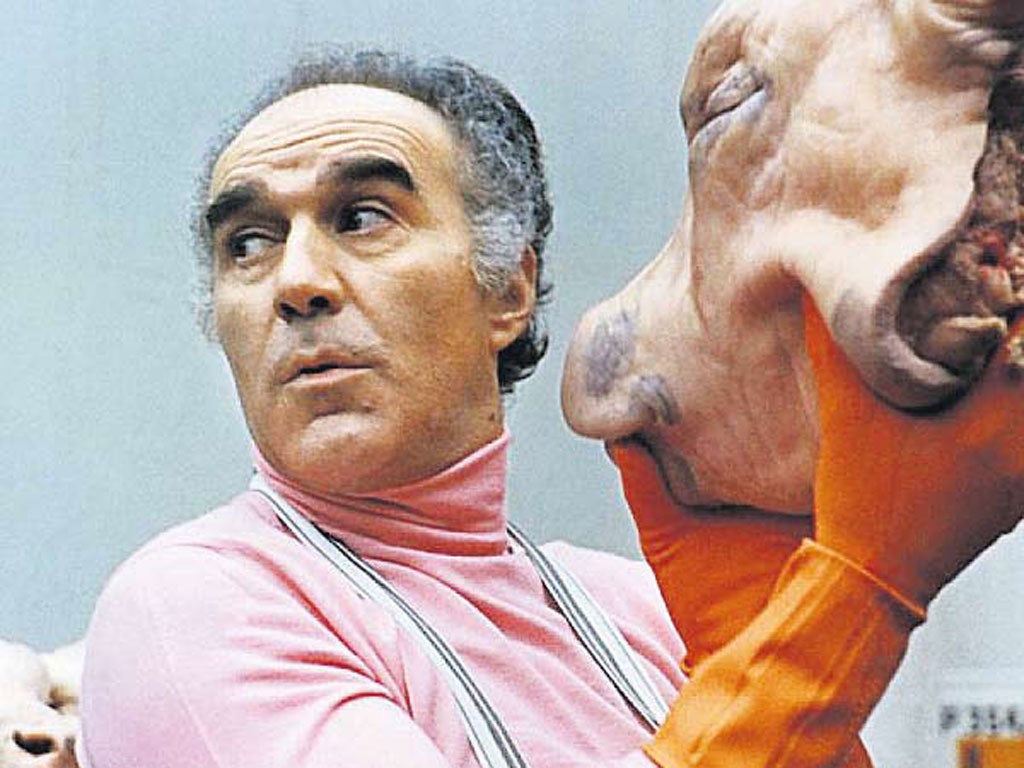Directors turn to their gut instincts
Food is the real star of a hamper of new movies, in turn inspired by past classics, says Geoffrey Macnab

You can't eat images. Cinema doesn't cater to our senses of taste or (unless you're watching a scratch-and-sniff film in glorious John Waters Odorama) of smell.
Nonetheless, recent years have seen the emergence of a strange new cinematic delicacy – the "culinary" movie. More and more films are being made about food. Treats being served up to British audiences in coming weeks include Gereon Wetzel's El Bulli: Cooking in Progress (a documentary about the celebrated Catalonian restaurant where world famous chef Ferran Adria concocted ever more outlandish recipes) and A Matter of Taste, a profile of celebrity chef Paul Liebrandt who, at the age of 24, was the youngest chef to be awarded three stars by The New York Times.
Food in cinema used to be used largely for comic purposes. Silent movies abounded in images of characters throwing cream pies at one another. Charlie Chaplin never had enough to eat – one reason why, in The Gold Rush (1925), he dined on a boot. Gluttony was always a source of mirth or satire. In Marco Fererri's La Grande Bouffe (1973), four world-weary characters tried to eat themselves to death. In Monty Python's The Meaning of Life (1983), Mr Creosote, the inordinately fat and grotesque gourmand, finally explodes after being fed a wafer-thin mint. Sex, death and cannibalism were key ingredients in Peter Greenaway's The Cook, The Thief, The Wife & Her Lover (1989).
The difference about the current batch of food-related films is that they are intended to be taken very seriously. One of the great patrons of the new wave of food films is Dieter Kosslick, the Director of the Berlin International Film Festival. Kosslick, who once wrote a history of the Bagel (Das Buch Bagel), has been scoffed at by fellow festival directors for his reverential approach toward food and cinema. Nonetheless, since he launched "Culinary Cinema" in Berlin in 2007, he has made sure that, at every Berlinale since then, at least 12 to 15 new films about food are served up.
Ask Kosslick about the links between film and food and he'll give you a scholarly account of the etymology of the word "focus". In Latin, it means hearth or fireplace. He also insists that film directors and chefs have a great deal in common.
"Our first title [for what became Culinary Cinema] was "See Food". We thought this is a very good title because cinema is also food for the soul and the senses," Kosslick reflects. "If you see the process to produce a film, to develop a film, to sell a film and you see what is done with food, it is very similar. That includes the star chefs who are like the star directors."
We're in an age where top chefs are as famous as movie actors. Gereon Wetzel, director of the El Bulli doc, freely acknowledges that the real star of his movie was the chef Ferran Adria. At the premiere, the crowds swarmed around Adria but paid very little attention to the film-maker who told the story of his restaurant (now closed) on screen.
The El Bulli film offers a very different image of a chef in action from what we are used to in kitchen-set reality TV shows featuring combustible personalities like Gordon Ramsay or Marco Pierre White. Adria behaves like a research scientist in pursuit of some startling new truth about quantum physics. "The more bewilderment, the better" is one of his mottos, as he and his colleagues experiment with liquids and strange looking solids, trying to create new taste sensations.
Other recent films about food haven't catered to popular stereotypes about haute cuisine and fine dining either. Many explore the iniquities of food production. We Feed the World (2005) explored the grim paradox that a billion people are dying of famine in a period when enough food is produced worldwide to feed 12 billion people. Food Inc. (2008) touched on the mistreatment of animals and employees in meat companies. And Bananas!* (2009) was the story of a campaigning lawyer who was representing Nicaraguan workers who claimed that a multi-national food corporation had caused their infertility through the use of a banned pesticide.

Watch Apple TV+ free for 7 days
New subscribers only. £8.99/mo. after free trial. Plan auto-renews until cancelled

Watch Apple TV+ free for 7 days
New subscribers only. £8.99/mo. after free trial. Plan auto-renews until cancelled
Not that the dark side of food production is allowed to get in the way of the gastronomic pleasure that Culinary Cinema is intended to provide. Once screenings are over, there is always the opportunity for audiences to tuck in for real. "We show films that stimulate the appetite. Afterwards, we serve food prepared by top chefs who have been watching the films themselves," Kosslick says.
'A Matter of Taste' is out on DVD on 6 August; 'El Bulli: Cooking in Progress' is released on 27 July
Subscribe to Independent Premium to bookmark this article
Want to bookmark your favourite articles and stories to read or reference later? Start your Independent Premium subscription today.

Join our commenting forum
Join thought-provoking conversations, follow other Independent readers and see their replies